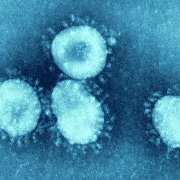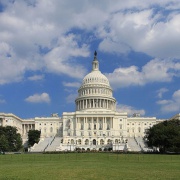White House COVID-19 Plan Contains Diagnostics Boost
A rapid scale-up of diagnostic testing for the novel coronavirus was the focus of a declaration of emergency by President Donald Trump in a March 13 press conference. The plan calls for sharply boosting the production of coronavirus test kits while also making tests available at a network of drive-through sites.
In his emergency declaration, Trump said that previous government regulation included “very old and obsolete” rules. The new declaration would enable the U.S. Department of Health and Human Services (HHS) to waive rules that may have impeded hospitals and healthcare providers from responding adequately to the coronavirus outbreak. The declaration would also make available $50 billion in federal funding to fight the outbreak.
But Trump reserved the lion’s share of his speech to explain what the administration is doing to make diagnostic test kits more available to test for SARS-CoV-2. Healthcare providers and clinical labs in the field have complained that they have not had enough coronavirus tests available to meet demand, and some have claimed that testing criteria have been too restrictive.
The new plan relies on a combination of making more testing capacity available and at the same time making it easier for Americans to get tested, such as with drive-through testing sites. The administration is also working with Google to set up a website that will enable Americans to determine on their own whether they should seek out testing.
With respect to testing capacity, Trump explained the work the administration has been doing with diagnostics manufacturers such as Roche and Thermo Fisher that builds on a meeting between diagnostics vendors and the government last week.
Roche developed a high-throughput test for the coronavirus, cobas SARS-CoV-2, that received emergency use authorization (EUA) from the U.S. Food and Drug Administration (FDA) within 24 hours of submission of an application. The test’s high-volume capacity should be a step forward in meeting demand for coronavirus testing, Trump said.
FOR MORE INFORMATION
https://www.labpulse.com/index.aspx?sec=sup&sub=mic&pag=dis&itemid=800889



